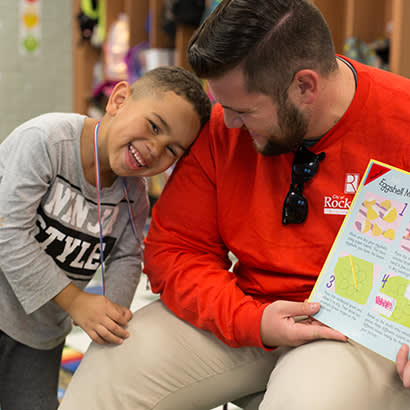As community-based providers of health, recreation and social-emotional development services to youth, local park and recreation professionals also function as mentors and role models. Park and recreation staff are called on to mentor and nurture youth in their communities, including troubled, at-risk youth. In times of emerging public health threats, including substance use, trauma, adverse childhood experiences, and rising rates of depression and suicide, parks and recreation are well-suited to build protective factors1 around youth and families and create connections across community.
Formal one-on-one and group mentoring programs, as well as informal mentoring opportunities, support youth in establishing strong connections with compassionate, caring adults and positive role models. Youth who are at-risk of falling off track but have a mentor, are 55 percent more likely to enroll in college, 52 percent less likely to skip a day of school than their peers and maintain better attitudes towards school. Mentoring also plays a role in preventing young people from engaging in harmful behaviors. Youth with mentors are 46 percent less likely than their peers to start using drugs.
Unfortunately, one in three young people in the United States reaches the age of 19 without having a mentor of any kind. This number includes nine million at-risk youth who are missing out on the critical support and connections that mentoring can provide. Park and recreation agencies are closing this gap by offering one-on-one and group youth mentoring programs and helping at-risk youth gain access to quality mentors.
NRPA Expands Mentoring in Parks and Recreation
Since 2018, NRPA has worked with 55 communities to implement evidence-based mentoring programs that seek to build protective factors around youth ages 5-17.
Read More
NRPA Youth Mentoring Resources
NRPA developed a collection of resources to help local park and recreation agencies craft their own unique, individualized mentoring programs. These resources are designed to help your agency leverage local park and recreation assets that build protective factors around at-risk youth, while also forming strong social connections and positive relationships to address trauma, adversity and other challenges that youth experience.
Learn More


